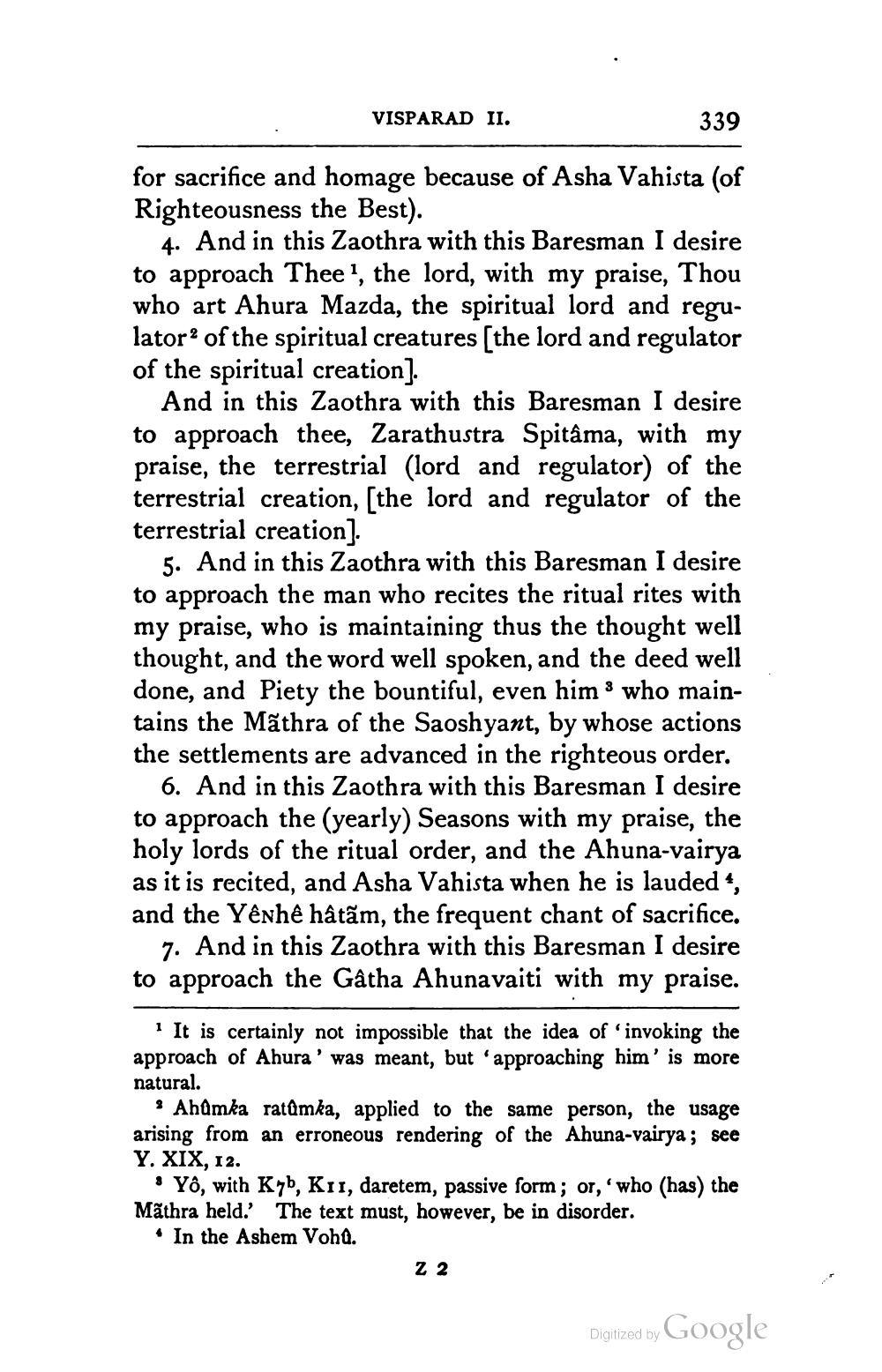________________
VISPARAD II.
339
for sacrifice and homage because of Asha Vahista (of Righteousness the Best).
4. And in this Zaothra with this Baresman I desire to approach Thee 1, the lord, with my praise, Thou who art Ahura Mazda, the spiritual lord and regulator of the spiritual creatures (the lord and regulator of the spiritual creation).
And in this Zaothra with this Baresman I desire to approach thee, Zarathustra Spitâma, with my praise, the terrestrial (lord and regulator) of the terrestrial creation, [the lord and regulator of the terrestrial creation].
5. And in this Zaothra with this Baresman I desire to approach the man who recites the ritual rites with my praise, who is maintaining thus the thought well thought, and the word well spoken, and the deed well done, and Piety the bountiful, even him who maintains the Mãthra of the Saoshyant, by whose actions the settlements are advanced in the righteous order.
6. And in this Zaothra with this Baresman I desire to approach the (yearly) Seasons with my praise, the holy lords of the ritual order, and the Ahuna-vairya as it is recited, and Asha Vahista when he is lauded, and the Yênhê hâtãm, the frequent chant of sacrifice.
7. And in this Zaothra with this Baresman I desire to approach the Gâtha Ahunavaiti with my praise.
1 It is certainly not impossible that the idea of 'invoking the approach of Ahura' was meant, but approaching him' is more natural.
Ahůmka ratůmka, applied to the same person, the usage arising from an erroneous rendering of the Ahuna-vairya ; see Y. XIX, 12.
• Yo, with Kyb, Kır, daretem, passive form; or, 'who (has) the Mãthra held.' The text must, however, be in disorder. • In the Ashem Vohu.
Z 2
Digitized by
Digitized by Google




